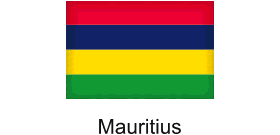 OIL SPILL: Thousands join to save Mauritius beaches
OIL SPILL: Thousands join to save Mauritius beaches
Thousands of students, environmental activists, and residents of Mauritius were working around the clock yesterday, trying to reduce the damage to the oil spill that was caused by a Japanese freighter off its coast. It was just announced that tourism will reopen in October when a Japanese freighter registered in Panama spilled over 1000 tons of oil off the Mauritian coast.
Mauritius is in a fight for the survival of their much-needed tourism industry. The people of Mauritius showed resilience when strict rules and discipline kept COVID-19 out of the country. This resilience is now tested again. Mauritius is known for its stunning beaches and relies heavily on tourists for income.
Mauritius officially the Republic of Mauritius, is an island nation in the Indian Ocean about 2,000 kilometres (1,200 mi) off the south-east coast of the African continent. It includes the eponymous main island of Mauritius and Rodrigues, Agaléga and St. Brandon. The islands of Mauritius and Rodrigues form part of the Mascarene Islands, along with nearby Réunion, a French overseas department.
The capital and largest city, Port Louis, is located on Mauritius, where most of the population is concentrated. The country spans 2,040 square kilometres (790 sq mi) and has an Exclusive Economic Zone covering 2.3 million square kilometres. Arab sailors were possibly the first to discover the uninhabited island around 975, which they called Dina Arobi. The earliest confirmed discovery was in 1507 by Portuguese sailors, who otherwise took little interest in the islands.
The Dutch took possession in 1598, establishing a succession of short-lived settlements before abandoning their efforts in 1710. France took control in 1715, renaming it Isle de France. About a century later, it ceded Mauritius and its dependencies to Great Britain. As a British colony, Mauritius included Rodrigues, Agalega, St. Brandon, Tromelin, the Chagos Archipelago, and, until 1906, the Seychelles.
Sovereignty over Tromelin is disputed between Mauritius and France, as it was not specifically mentioned in the Treaty of Paris. Mauritius remained a primarily plantation-based colony of the United Kingdom until independence in 1968. In 1965, three years prior to the independence of Mauritius, the U.K. split the Chagos Archipelago from Mauritian territory, and the islands of Aldabra, Farquhar and Desroches from the Seychelles, to form the British Indian Ocean Territory (BIOT).
The local population was forcibly expelled and the largest island, Diego Garcia, was leased to the United States. The UK has restricted access to the Chagos Archipelago to casual tourists, the media, and its former inhabitants. The sovereignty of the Chagos is disputed between Mauritius and the UK. In February 2019, the International Court of Justice issued an advisory opinion ordering the UK to return the Chagos Islands to Mauritius as rapidly as possible, in order to complete the decolonisation of Mauritius.
